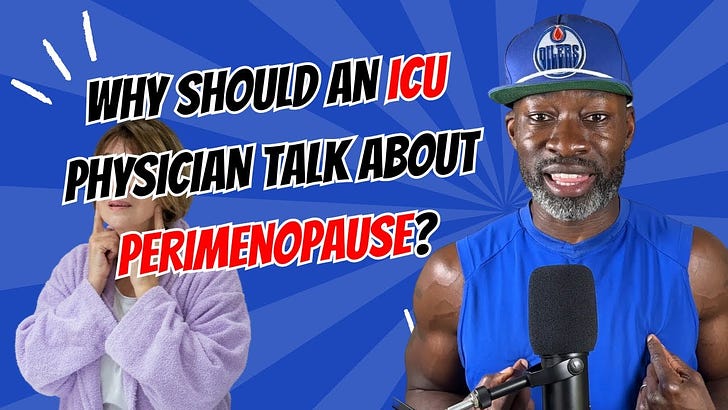I recently returned from an incredible healthcare conference focused on health and wellness, where I participated in a panel discussion on men and menopause. A question came up that struck a chord with many: “Why should a male ICU physician be talking about menopause?” It’s a valid question. Why should I be on this panel, or even lead such a discussion? For me, it comes down to one core value: justice.
Why Justice Matters in Menopause Care
For decades, women have suffered needlessly due to the widespread misinterpretation of data from the Women’s Health Initiative (WHI) study. This has led to a long history of untreated menopausal symptoms, including hot flashes, mental fog, weight gain, and more. Consider this staggering statistic: 10% of women have left their professions due to perimenopausal symptoms. Too many women have been misdiagnosed or prescribed antidepressants and anti-anxiety medications rather than receiving targeted care for their hormonal changes. This is an injustice that has persisted for far too long.
The data is clear: effective treatment for menopausal symptoms—like hormone replacement therapy (HRT)—can lead to a lower risk of cardiovascular disease, Alzheimer’s, osteoporosis, and hip fractures. These are not trivial outcomes; they impact women’s quality of life and longevity. Yet, for years, many healthcare providers have been hesitant to prescribe HRT or have not engaged in open, informed discussions about its benefits and risks.
Why Allies Are Crucial
The conversation around menopause requires as many allies as possible—regardless of gender or specialty. Healthcare should not operate in silos, and being a male physician discussing menopause is not about overstepping; it’s about standing with women and advocating for comprehensive, compassionate care. I’m encouraged by the progress we’re seeing, with movements like Sanity Living and organizations focusing on midlife wellness stepping up to increase access and awareness for women navigating perimenopause.
Personal Motivation Matters Too
This cause isn’t just professional for me—it’s deeply personal. I’ve witnessed the transformative power of proper menopause care in my own life, as my wife navigated her perimenopausal journey. Hormone replacement therapy re-energized her, improved her sleep, strengthened her body, and returned a sense of vitality. While HRT isn’t for everyone, it must be an option for women who need it. My hope is for women to feel empowered to have these conversations with their healthcare providers, even if it means advocating strongly for themselves.
Taking Charge: What Women (and Men) Can Do
To the women reading this: educate and advocate for yourselves. Sometimes change in clinical practice takes time, so come prepared with your research, ask questions, and explore all options, including lifestyle modifications like weight training, nutrition, and prioritizing sleep. For those who find HRT beneficial, it can be life-changing.
And to the men: be allies. Support the women in your lives and your workplaces. Understand that advocacy for menopausal health benefits everyone—families, workplaces, and communities. When women thrive, we all thrive.
A Call to Action
Let’s continue this important work. Menopause advocacy isn’t just about symptom relief—it’s about justice, equity, and better healthcare for all.
Thank you for reading. Let’s move this conversation forward, together.
Peace and health,
Dr. K
GYATA NUTRITION
Gyata Nutrition is now live! Founded by Dr. Kwadwo Kyeremanteng, Gyata Nutrition offers top-quality supplements, including New Zealand Whey Protein Isolate, Collagen, Magnesium, and Fish Oil—all Health Canada-approved.
Get your Gyata Strong Bundle and save 50%
Visit gyatanutrition.com and use promo code kwadcast15 to save on your order now!




